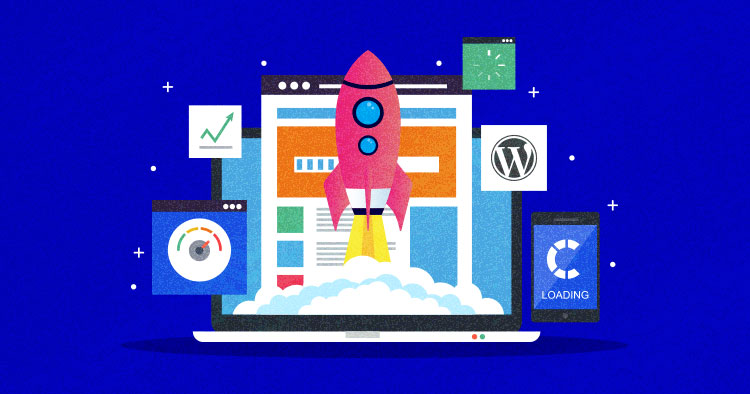
In today's fast-paced digital world, website speed is a crucial factor that can make or break your online presence. Slow loading times can frustrate visitors, leading to high bounce rates and poor user experience. For WordPress websites, choosing the right web hosting provider and optimizing your hosting environment are key steps in maximizing website speed. In this article, we will explore some actionable tips to help you optimize your WordPress web hosting for speed and performance.
1. Choose a Reliable Web Hosting Provider
When it comes to maximizing website speed, the choice of web hosting provider plays a significant role. Here are some factors to consider when selecting a web hosting provider for your WordPress website:
Factors to consider:
- Uptime guarantee: Look for a hosting provider that offers a high uptime guarantee to ensure that your website is accessible to visitors at all times.
- Server location: Choose a server location that is geographically close to your target audience to reduce latency and improve loading times.
- Performance optimization: Opt for a hosting provider that offers performance optimization features such as SSD storage, CDN integration, and caching technologies.
- Scalability: Ensure that the hosting provider can easily accommodate your website's growth and traffic spikes without compromising speed and performance.
2. Optimize Your WordPress Installation
In addition to selecting the right web hosting provider, optimizing your WordPress installation can further enhance website speed. Here are some tips to optimize your WordPress website for speed:
Tips for optimization:
- Keep WordPress updated: Regularly update your WordPress core, themes, and plugins to ensure optimal performance and security.
- Minimize plugins: Deactivate and delete unnecessary plugins to reduce the number of HTTP requests and improve loading times.
- Optimize images: Compress images before uploading them to your website to reduce file sizes and decrease loading times.
- Enable caching: Use caching plugins to generate and serve static HTML files, reducing server load and improving website speed.
3. Implement Content Delivery Network (CDN)
A Content Delivery Network (CDN) can significantly improve website speed by distributing content across multiple servers located in different geographic locations. By serving content from the nearest server to the user, a CDN reduces latency and accelerates loading times. Here's how to implement a CDN for your WordPress website:
Steps to implement CDN:
- Choose a CDN provider: Select a reliable CDN provider based on your website's needs and budget.
- Integrate CDN with WordPress: Install and configure a CDN plugin to seamlessly integrate the CDN with your WordPress website.
- Optimize CDN settings: Fine-tune CDN settings to ensure optimal performance and caching of static assets.
4. Monitor and Optimize Performance
Regular monitoring and optimization are essential to maintain peak performance for your WordPress website. By analyzing website metrics and user behavior, you can identify areas for improvement and implement targeted optimizations. Here are some tools and strategies to help you monitor and optimize website performance:
Tools and strategies:
- Google PageSpeed Insights: Use this tool to analyze website speed and receive recommendations for improving performance.
- GTmetrix: Monitor website performance metrics and receive insights on areas for optimization.
- Optimize database: Clean up and optimize your WordPress database regularly to improve website speed.
- Enable lazy loading: Lazy loading images and videos can defer offscreen content loading, reducing initial page load times.
5. Consider Managed WordPress Hosting
For users looking to offload the technical aspects of web hosting and focus on content creation, managed WordPress hosting can be a convenient solution. Managed hosting providers offer optimized server configurations, automatic updates, and expert support to ensure high website speed and performance. Here are some benefits of choosing managed WordPress hosting:
Benefits of managed hosting:
- Automatic backups: Managed hosting providers offer automated daily backups to protect your website data.
- Security features: Benefit from enhanced security measures such as malware scanning, firewalls, and SSL certificates.
- Expert support: Access knowledgeable support team to troubleshoot issues and optimize website performance.
- Scalability: Managed hosting plans are designed to accommodate website growth and traffic spikes without compromising speed.
By implementing these tips and strategies, you can optimize your WordPress web hosting for maximum speed and performance. Remember that website speed is a critical factor that can impact user experience, search engine rankings, and overall online success. Stay proactive in monitoring and optimizing your website speed to provide a seamless browsing experience for your visitors.